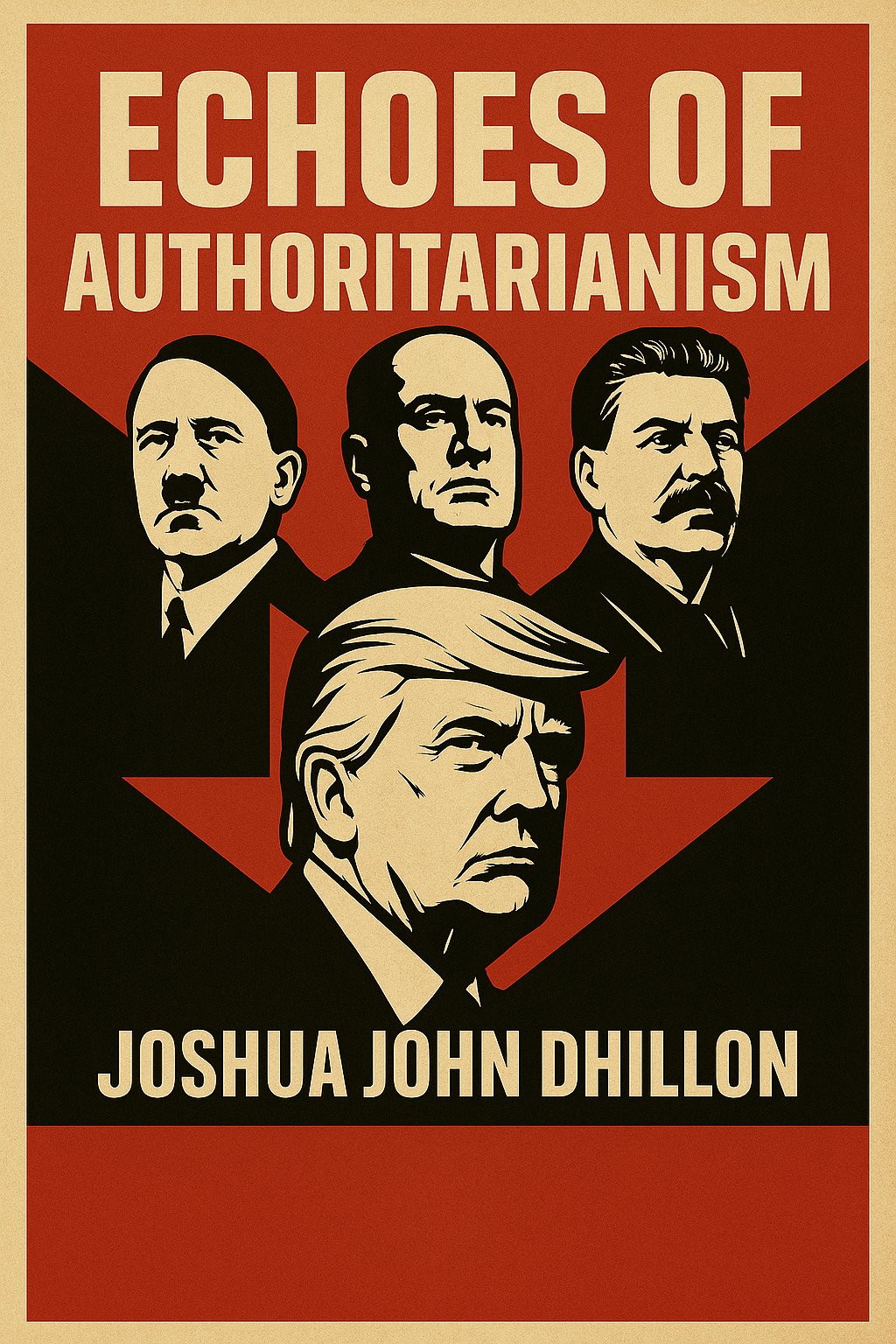History doesn’t repeat itself—but it often rhymes. And right now, the echoes are deafening.
Authoritarianism Rebooted: From Mussolini to MAGA is my attempt to trace those echoes—to understand where they come from, what they mean, and what they’re warning us about. This isn’t a partisan rant. It’s a forensic dive into how democracies fall—not with a bang, but with a shrug. I draw from the sweeping lens of Big History, which looks at everything from the birth of the cosmos to the rise and fall of civilisations. Through that lens, I explore how authoritarianism takes root: from Hitler’s “legal” slide into dictatorship, Mussolini’s manipulation of fear and national pride, and Stalin’s war on truth, to Khomeini’s hijacking of revolution, Chávez’s populist dismantling of institutions, Orbán’s modern autocratic blueprint, and North Korea’s cult of dynastic worship. And then… There’s Donald Trump.

Also available on many other Amazon platforms, just type my full name into search bar.
This book doesn’t scream comparisons. It calmly lays them out. Trump’s recent rhetoric—describing opponents as “vermin,” promising “retribution,” and longing for generals like those of Nazi Germany—aren’t just disturbing.
They’re historically familiar. They echo the early warning signs seen in regimes that eventually crushed dissent, bent the law to the will of one man, and claimed to speak for an entire people while silencing millions. But I’m not just here to map out the threat. I’m here to show how it can be resisted.
Because history doesn’t just offer warnings—it offers examples of courage. This book is filled with them: the judges who said no, the citizens who refused to be silent, the institutions that (sometimes barely) held the line. It’s a reminder that democracy isn’t self-sustaining—it’s a choice we make, over and over again.
Through side-by-side case studies, chilling timelines, and insights from psychology and political science, Echoes of Authoritarianism reveals how democracy dies not in darkness, but in broad daylight—through laws, language, and the slow normalisation of the unthinkable.
And it ends with the most urgent question of all:
When the time comes to choose between comfort and courage… which side of history will you be on?
Why I Wrote This
This book isn’t just an academic exercise for me. It’s personal.
I’ve carried a quiet fear about this topic since I was around ten years old. I still remember the day my dad sat me down and made me watch American History X. A heavy choice for a kid, maybe—but a necessary one. He wanted me to understand something early: that extremism doesn’t always come charging in. Sometimes it creeps, dressed as patriotism, wrapped in promises, whispering that it knows best.
That conversation stayed with me. It shaped the way I looked at the world. It’s why I later studied psychology. Why I’ve spent years fascinated—and horrified—by the rise of authoritarian regimes.
But this isn’t just about theory or history books. This is about what I’ve lived.
As someone who’s half Indian and half Italian, but born and raised in the UK, I’ve been told to “go back to my own country”—by people living off the very system my parents worked hard to support. The same system they paid into. The same country both sides of my family proudly fought for. And yet, I was the one seen as the outsider.
Racism isn’t abstract. It’s real. It’s personal. And it’s often fuelled by ignorance, fear, and political opportunism—by people who are manipulated into seeing someone like me as the problem, rather than questioning the systems that keep them angry, poor, and misinformed.
That’s where this book comes in.
This is my attempt to make sense of the patterns. To connect the dots between history, ideology, and the lived realities of people who are always “othered” when authoritarian ideas gain traction. It’s about showing that the rise of hatred, division, and autocracy isn’t accidental—it’s rehearsed.
If this book helps just one person see what’s happening more clearly, speak up more loudly, or simply pay closer attention—then it’s done what it needed to do.
We’ve been here before. We don’t have to go there again.
—Joshua John Dhillon